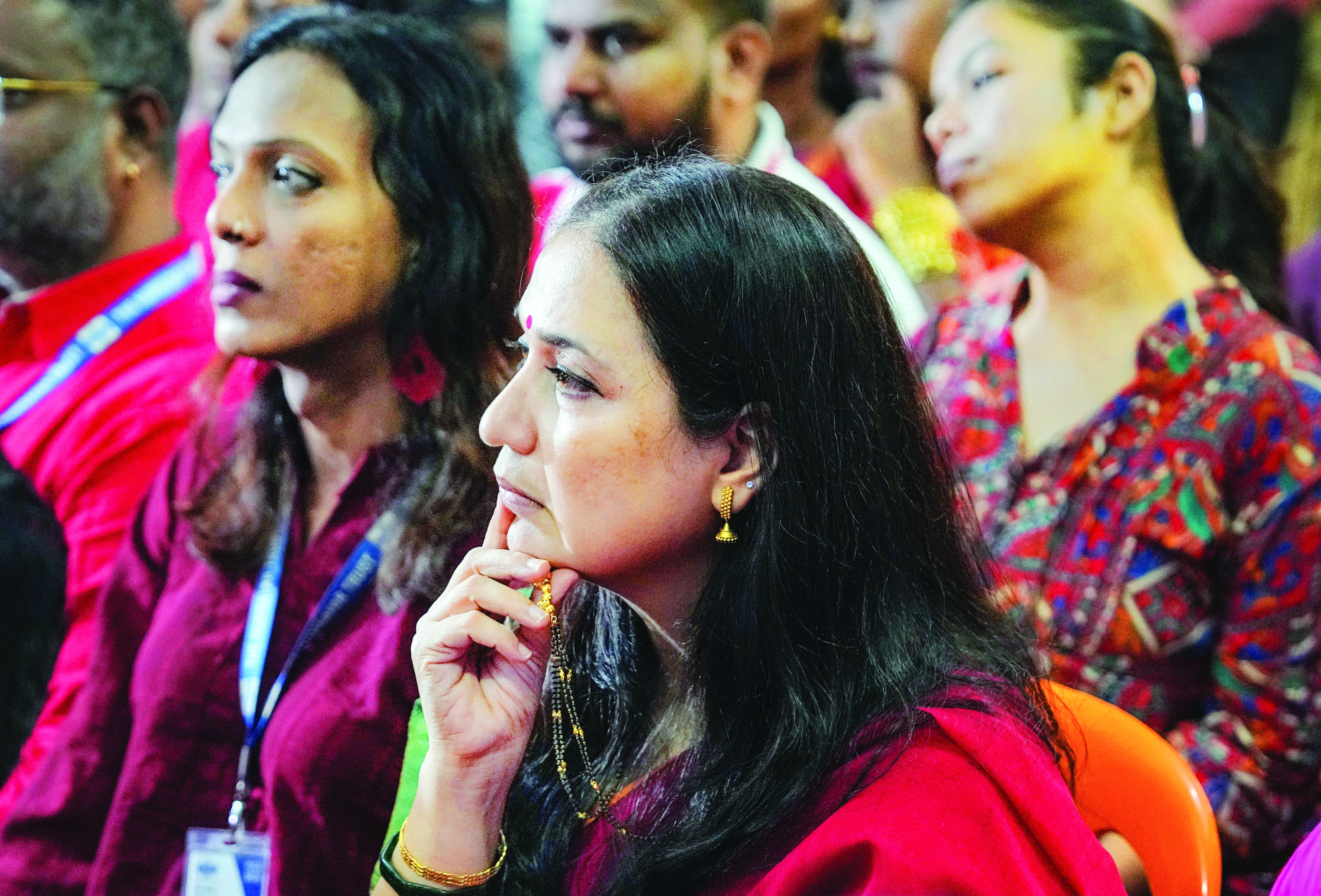Unseized moment!
The Supreme Court’s ruling refusing to grant legal recognition of marriages between same-sex couples is a massive setback to the hopes and aspirations of the LGBTQIA+ community, indicating that there is a long way to go in transitioning from a ‘queer-friendly’ society to a ‘queer-affirmative’ one

The Supreme Court ruled on October 17, 2023 that there cannot be legal recognition for same-sex marriages in India, with a 3-2 majority. For a long time, there has been a push to acknowledge a union that would ensure LGBTQIA lead a “dignified” life like heterosexuals.
What does this mean for folks who belong to the LGBTQIA community?
* No legal recognition of same-sex marriages;
* No constitutional or fundamental right to civil unions;
* Centre’s high-powered committee to examine concerns of same-sex couples;
* There is no right for queer couples to jointly adopt.
The mental health of the LGBTQIA+ community is often ignored. LGBTQIA individuals may face unique mental health challenges and disparities due to social, cultural, and personal factors. This is due to a dearth of education, information, and even trained professionals who understand their issues. Common issues (different for different individuals) can range from higher rates of depression and anxiety than the cis population. This can be primarily due to rejection by oneself or one’s family. Higher rates of suicidal ideation and attempts in LGBTQIA individuals are noted due to the experience of bullying, rejection, and discrimination. Conditions like substance abuse are seen when trying to cope with stress. Eating disorders and body image issues, particularly in trans people, are reported and widely studied. Post-Traumatic Stress Disorder (PTSD) from hate crimes, violence, or experiences related to coming out are common.
In general, minority stress, leading to isolation and loneliness, along with various challenges with jobs, relationships, and even society, is noted in LGBTQIA individuals.
A pro-marriage judgement could have been a giant leap in many aspects for the community. It would lead to:
* Equality and human rights: These can be validated and recognised by the same-sex union;
* Social inclusion and acceptance: Marriage is not just a legal contract; it holds profound social and cultural significance;
* Mental health and well-being improvement: Marriage may reduce the stigma they face and provide a supportive framework for their relationships, thereby reducing the burden of mental health and suicide rates;
* Economic benefits: Legalising same-sex marriage can help access spousal benefits, such as healthcare and tax benefits, for same-sex couples;
* Legal protections: Marriage offers various legal protections, including inheritance rights, property rights, and access to healthcare benefits;
* Parental rights: It provides security for couples who wish to raise children, and ensures the best interests of the child;
* Reduced discrimination: Marriage equality could help reduce discrimination in various areas of life, including employment and housing;
* Global progress: Legalising same-sex marriage in India would signal a broader global commitment to LGBTQ+ rights and inclusivity;
* Political and social change: The legal fight for same-sex marriage often leads to greater LGBTQ+ visibility and advocacy, sparking broader discussions about LGBTQ+ rights and fostering positive changes in society and politics.
Queer affirmative and queer-informed therapy
Queer affirmative therapy focuses on affirming the client’s identity and sexual orientation. In counselling for the LGBTQ community, the therapist focuses on helping the individual live and accept their most authentic selves. LGBTQ psychotherapy helps the individual develop their own identity as a queer person.
These are the many reasons why more LGBT mental health counsellors are needed. As per research, there is a lack of trained professionals who are sensitised to these issues. Those who do seek help state that they face further discrimination and invalidation of feelings from mental health professionals, and some are subjected to illegal “conversion therapy” to reintegrate back into societal norms.
The difference between “queer-friendly” and “queer-affirming” is significant. A person or organisation is said to be queer-friendly if they are welcoming and tolerant of those who identify as queer, yet this does not necessarily imply that they are supportive of LGBT individuals and their identities. A person or organisation that actively recognises and promotes queer individuals and their identities is said to be queer-positive. Organisations that are queer-affirmative are often far more inclusive and supportive of gay individuals than organisations that are queer-friendly.
Together we need to build a more inclusive world.
Send your questions to [email protected]



